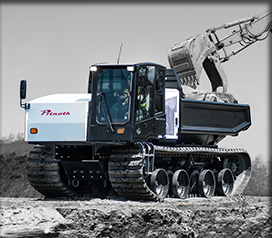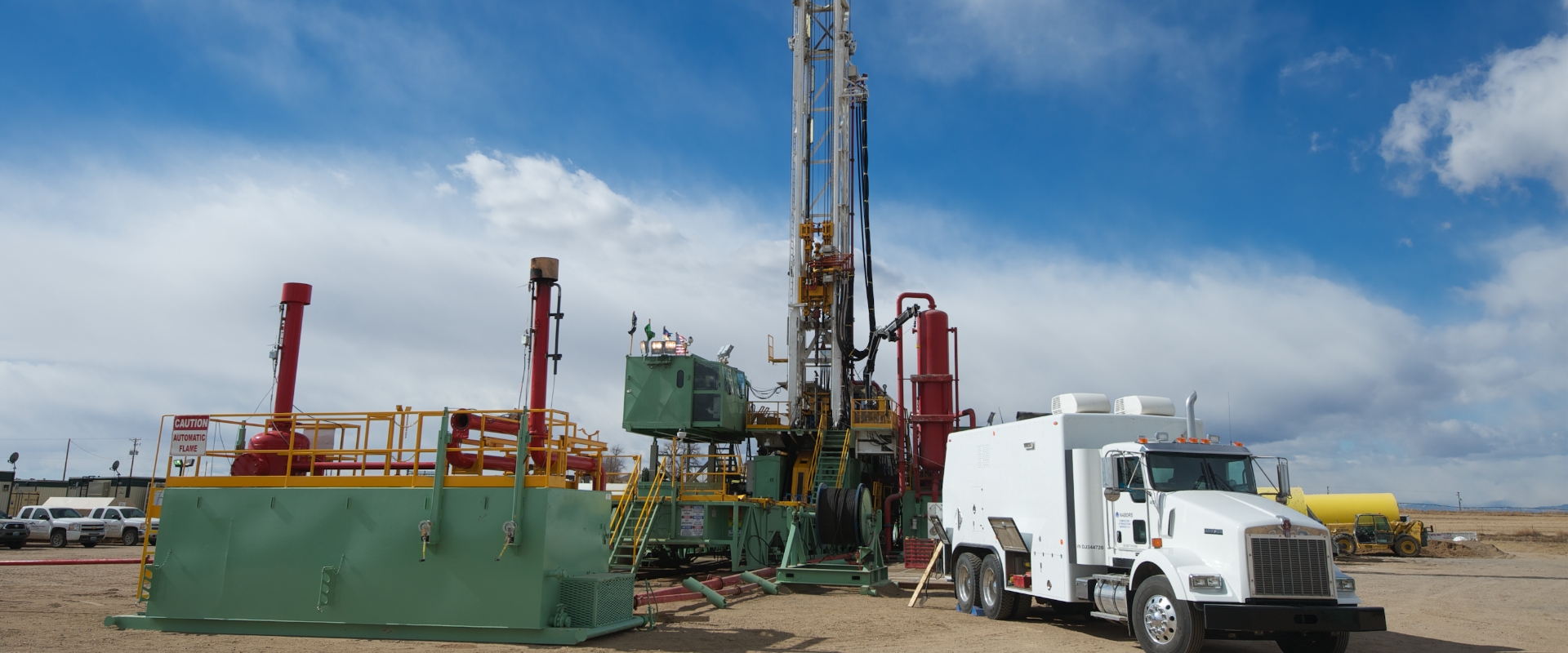Superior Rentals fusion machines: how they save time
Wiki Article
A Comprehensive Guide to the Numerous Sorts Of Oil Field Equipment and Pipeline Equipment Available
The oil and gas market counts heavily on specialized tools for efficient extraction and transportation. Numerous types of machinery, from piercing rigs to storage space containers, play important duties in this complex procedure. Each item of equipment offers distinctive functions that add to overall operational success. Recognizing these components is important for any individual associated with the sector. As the sector advances, so too do the innovations that support it. What improvements are on the perspective?
Drilling Rigs: The Backbone of Oil Expedition
Drilling rigs act as the essential equipment in the domain of oil expedition, enabling firms to access hydrocarbon gets buried deep under the Planet's surface area. These rigs come in numerous types, consisting of land rigs, offshore rigs, and mobile units, each created to operate in certain environments. Furnished with advanced innovation, piercing rigs can pass through geological developments with accuracy, making sure efficient resource removal. The structural stability and operational abilities of these rigs are vital, as they must endure severe conditions and substantial pressures. Additionally, the choice of an exploration rig affects the total job expense and timeline, making it an essential consideration for oil companies seeking to maximize their exploration initiatives and maximize performance in their procedures.Pumps: Crucial for Liquid Activity
In the oil removal procedure, the duty of pumps is considerable, promoting the activity of liquids throughout numerous phases of manufacturing. Pumps are necessary for moving petroleum, water, and various other fluids from underground reservoirs to the surface and afterwards with pipelines to refineries. They come in different types, including centrifugal, positive variation, and completely submersible pumps, each serving particular objectives based on the liquid qualities and operational demands. Centrifugal pumps are generally made use of for their performance in high-flow applications, while favorable displacement pumps master handling thick liquids. The option of pump impacts total performance, functional safety, and upkeep expenses. Proper option and upkeep of pumps are crucial for optimizing production and minimizing downtime in oil area operations.Shutoffs: Controlling Flow and Pressure

Valves play a vital role in handling the circulation and pressure of fluids within oil fields and pipes. Numerous sorts of valves offer distinct applications, each developed to accomplish particular features basic for reliable procedure - Superior Rentals reviews. Understanding the attributes and uses these shutoffs is important for maximizing system performance and security
Kinds of Valves
Vital parts in oil field operations, shutoffs play a critical duty in controlling the circulation and pressure of fluids within pipes and tools. Various kinds of shutoffs are used to satisfy the varied requirements of oil and gas manufacturing. Typical types include gate valves, which provide a straight-line flow and marginal stress drop; world valves, understood for their throttling capabilities; and ball shutoffs, identified for their fast on/off control. In addition, check shutoffs stop heartburn, while butterfly shutoffs use a lightweight option for regulating flow. Each shutoff kind is designed with certain materials and configurations to withstand the rough problems usually found in oil areas, guaranteeing integrity and efficiency in operations. Understanding these kinds is crucial for efficient system management.Valve Applications and Functions
While various kinds of valves offer distinctive objectives, their primary applications rotate around managing circulation and pressure within oil and gas systems. Shutoffs such as gateway, globe, and ball shutoffs regulate liquid motion, ensuring peak efficiency and security. Entrance valves are commonly used for on/off control, providing marginal circulation resistance. Globe valves, on the various other hand, deal exact flow policy, making them suitable for strangling applications. Round valves are favored for their quick procedure and tight sealing capacities. Additionally, stress relief shutoffs are vital for stopping system overpressure, protecting tools stability. In general, the appropriate option and application of shutoffs enhance functional performance, making sure the trustworthy transport of oil and gas via pipes and processing centers.Compressors: Enhancing Gas Transportation
Compressors play an important duty in the effective transport of gas, guaranteeing that it relocates smoothly through pipelines over fars away. These tools raise the pressure of all-natural gas, enabling it to conquer rubbing and elevation adjustments within the pipeline system. In addition, compressors facilitate the balancing of supply and demand, fitting changes in intake and manufacturing rates. Various sorts of compressors are utilized in the market, including centrifugal, reciprocating, and rotary screw compressors, each offering distinctive benefits based upon the functional requirements. Routine upkeep of these compressors is important to optimize efficiency and reduce downtime, eventually contributing to a trustworthy gas transport network. Their important feature emphasizes the importance of compressors in the general oil and gas framework.Storage Tanks: Safe and Reliable Liquid Administration
Reliable transportation of all-natural gas counts on different supporting systems, one of which is the correct monitoring of tank. These storage tanks play an essential duty in securely containing liquids, ensuring that operational efficiency is maintained while minimizing ecological dangers. Created from long lasting products, they are developed to withstand high stress and destructive elements. Properly sized and strategically situated, storage containers facilitate the smooth circulation of gas and other fluids, preventing bottlenecks in supply chains. Regular maintenance and tracking are essential to discover leaks or structural issues, advertising safety and security and conformity with regulative requirements. Ultimately, the effective management of storage containers is crucial for the total stability and integrity of the oil and gas industry's liquid handling systems.
Pipeline Systems: Facilities for Transport
Pipeline systems serve as the foundation of the oil and gas industry, promoting the efficient transport of hydrocarbons over large ranges. These systems include different parts, including pipelines, check here shutoffs, pumps, and compressors, all carefully designed to ensure smooth flow. The materials made use of in pipeline building and construction, commonly steel or high-density polyethylene, are chosen for durability and resistance to rust. Pipeline networks can span throughout land and water, linking manufacturing websites to refineries and distribution. Furthermore, advanced innovation enables real-time monitoring of flow prices and stress degrees, boosting operational efficiency. The strategic placement of these pipelines lessens environmental effect while taking full advantage of resource ease of access, therefore playing a necessary duty in conference power needs globally.Safety Equipment: Making Sure Employee and Environmental Security
The operation of pipeline systems, while crucial for power transportation, additionally offers considerable security challenges for workers and the atmosphere. Security tools plays a substantial duty in reducing these dangers. Personal safety tools (PPE) such as headgears, gloves, and non-slip footwear safeguards employees from physical threats. Furthermore, gas detection systems keep track of for leakages, making certain that unsafe materials do not position a risk to employees or the bordering community. Emergency shutdown systems are critical for quickly halting procedures during a situation, avoiding prospective calamities. Spill control materials, consisting of absorbents and barriers, are basic for reducing ecological effect. Overall, purchasing all-encompassing safety and security devices is critical for maintaining functional integrity and shielding both workers and the setting in the oil and gas industry.
Often Asked Concerns
Exactly how Do I Select the Right Oil Field Equipment for My Job?
Selecting the right oil area tools includes reviewing project specs, spending plan constraints, and functional needs. Consider aspects such as equipment dependability, compatibility with existing systems, and the vendor's reputation to ensure peak efficiency and security.What Are the Maintenance Requirements for Oil Field Equipment?
Upkeep demands for oil area devices include routine inspections, lubrication, and prompt fixings. Operators must also stick to supplier standards, monitor efficiency metrics, and guarantee compliance with safety and security guidelines to enhance long life and effectiveness.
Just How Can I Make Certain Compliance With Environmental Regulations?
To ensure conformity with ecological guidelines, firms must conduct regular audits, execute ideal techniques, buy training, preserve proper documentation, and stay upgraded on regulations (Superior Oilfield Rentals Texas). Collaboration with ecological companies can additionally improve adherence to regulationsWhat Is the Average Lifespan of Pipeline Equipment?
The average life-span of pipeline tools typically ranges from 20 to half a century, relying on variables such as worldly high quality, environmental conditions, and upkeep techniques. Normal examinations can substantially affect durability and operational performance.Just how Do I Safely Carry Oil Field Equipment to Remote Locations?
Transferring oil field tools to remote places needs careful preparation, consisting of path evaluation, securing permits, utilizing ideal vehicles, and making sure safety and security protocols are followed. Proper training and interaction among staffs are necessary for successful transport.Report this wiki page